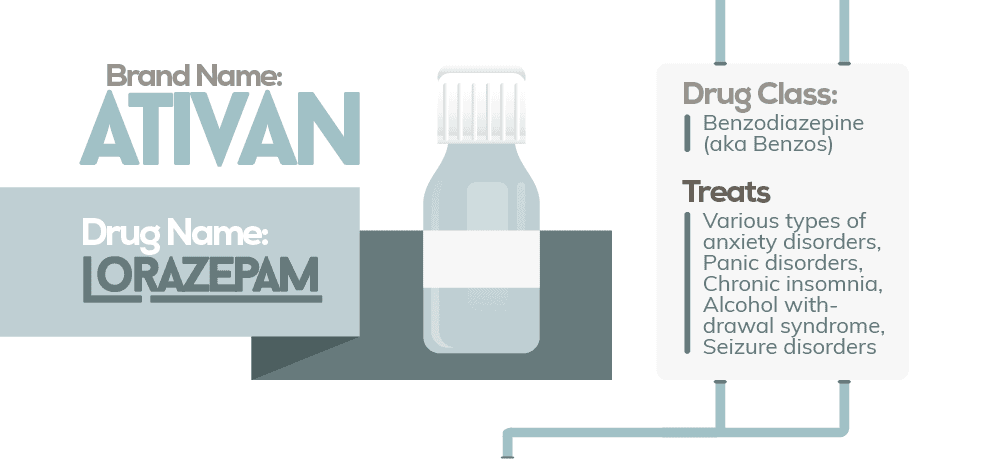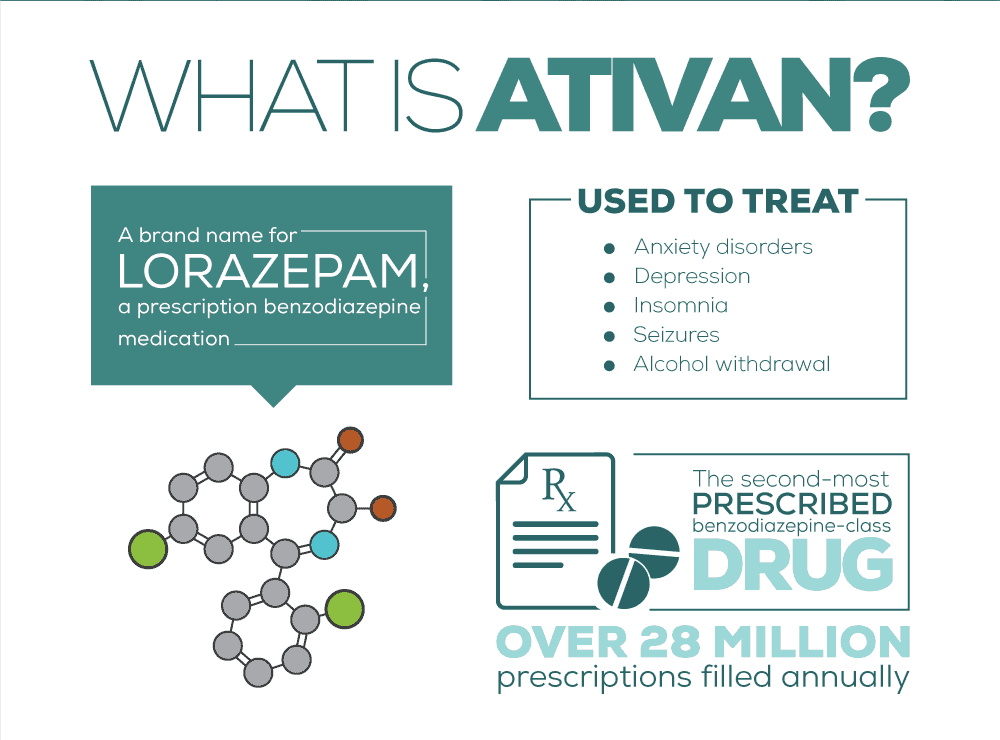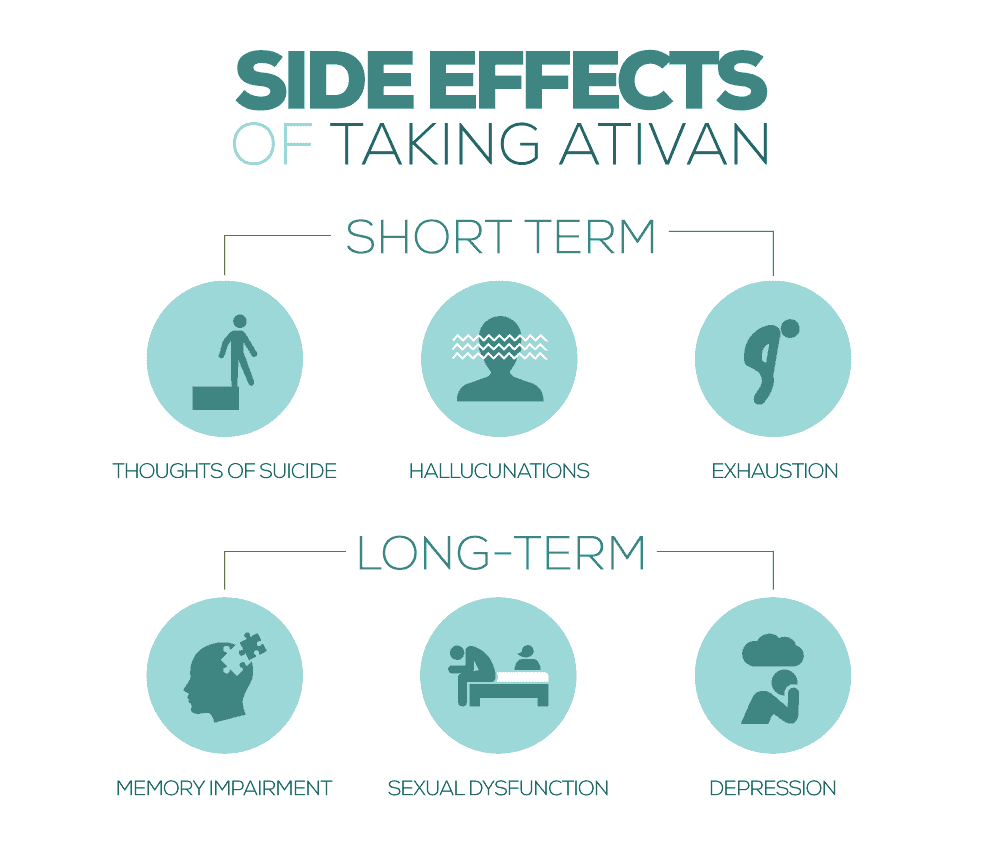Ativan emerges as a silent warrior in the realm of anxiety management and beyond. Have you ever felt the weight of unease pressing down, making each breath a battle? Imagine a moment of serenity amidst the storm, a moment where tranquility reigns supreme. Ativan holds the key to unlocking this serenity, offering respite from the chaos within.
In our exploration today, we delve into the uses, benefits, and insights surrounding Ativan, shedding light on its transformative potential. From anxiety disorders to the soothing effects it bestows, Ativan is a beacon of hope for many. Join us as we navigate the realm of this benzodiazepine medication, uncovering its power, risks, and everything in between.
Prepare to embark on a journey of understanding, where the veils of confusion are lifted, and clarity prevails. Discover the nuances of medication-assisted treatment, the subtle dance of benefits versus risks, and the intricate tapestry that is Ativan. Let’s unravel the layers together and embrace the profound impact this medication can have on one’s well-being.

Introduction
Welcome to our comprehensive guide on Ativan, a powerful medication that plays a significant role in managing anxiety and various other conditions. In this article, we aim to provide you with valuable insights into the uses, benefits, and understandings of Ativan.
Ativan, also known by its generic name lorazepam, belongs to a class of medications called benzodiazepines. It exerts its therapeutic effects by enhancing the activity of a neurotransmitter called gamma-aminobutyric acid (GABA), which helps to reduce anxiety and promote relaxation.
Through this article, we will delve into the medical uses of Ativan and explore its effectiveness in treating anxiety disorders, insomnia, panic attacks, seizures, and alcohol withdrawal. We will discuss the benefits and therapeutic effects of Ativan for each specific condition, shedding light on the soothing and calming impact it can have.
It is important to note that while Ativan can be incredibly helpful when used responsibly and under the guidance of healthcare professionals, it is crucial to be aware of the associated risks and potential side effects. We will touch upon these aspects as well, emphasizing the importance of informed and responsible use.
So, let us embark on this journey to unlock the potential of Ativan and gain a deeper understanding of its uses, benefits, and insights.
What is Ativan?

Ativan, also known by its generic name lorazepam, is a potent benzodiazepine medication commonly used to treat various conditions. Its classification as a benzodiazepine places it in a category of drugs known for their anxiolytic, sedative, and muscle-relaxing properties. This medication acts by enhancing the effects of an inhibitory neurotransmitter in the brain called gamma-aminobutyric acid (GABA), thereby producing a calming and relaxing effect.
Ativan has been approved by the U.S. Food and Drug Administration (FDA) for several indications. It is most commonly prescribed to alleviate symptoms associated with anxiety disorders, including generalized anxiety disorder (GAD), social anxiety disorder, and panic disorder. The soothing effect of Ativan helps to reduce excessive worrying, restlessness, and fear experienced by individuals with these conditions.
Aside from its primary use in anxiety disorders, Ativan is also prescribed for other medical conditions. It has shown efficacy in managing insomnia, particularly for those who struggle with falling asleep or staying asleep throughout the night. Ativan can help induce sleep and promote a more restful sleep pattern. In cases where individuals experience seizures, Ativan is often utilized as an anticonvulsant medication to prevent and control seizures effectively.
Moreover, Ativan plays a crucial role in medical settings, such as hospitals, where it is administered to alleviate symptoms of alcohol withdrawal syndrome. Its calming effects help combat anxiety, tremors, and agitation experienced by individuals going through alcohol withdrawal. By mitigating these symptoms, Ativan contributes to a safer and more comfortable detoxification process.
While Ativan has FDA-approved uses, it may also be prescribed “off-label” in certain situations. Off-label use refers to the administration of a medication for a purpose other than its approved indications. For example, Ativan may be prescribed off-label to manage symptoms associated with vertigo, or as a pre-anesthetic medication to reduce anxiety before surgery. The decision to prescribe Ativan off-label is typically made by healthcare professionals based on their clinical judgment and experience.
In summary, Ativan, also known as lorazepam, is a benzodiazepine medication used primarily for the treatment of anxiety disorders, insomnia, seizures, and alcohol withdrawal syndrome. Its mechanism of action involves enhancing the effects of the neurotransmitter GABA in the brain, leading to a calming and sedating effect. While it is FDA-approved for specific indications, healthcare professionals may also prescribe Ativan off-label for other medical conditions, taking into consideration the individual’s unique needs.
Medical Uses and Benefits
Ativan, also known by its generic name lorazepam, is a versatile medication that finds application in various medical conditions. Its effectiveness in treating anxiety disorders, insomnia, panic attacks, seizures, and alcohol withdrawal makes it a valuable therapeutic tool. Let’s explore the medical uses and benefits of Lorazepam in detail:
Treating Anxiety Disorders
Anxiety disorders, characterized by excessive worry and fear, can significantly impact a person’s daily life. Ativan belongs to the benzodiazepine class of medications and is commonly prescribed for the short-term management of anxiety disorders. It works by enhancing the effects of gamma-aminobutyric acid (GABA), a neurotransmitter that helps regulate anxiety. By calming the central nervous system, Ativan can provide relief from symptoms of anxiety, such as excessive worrying, restlessness, and tension.
Managing Insomnia
Individuals struggling with insomnia, a sleep disorder characterized by difficulties falling asleep or staying asleep, may benefit from Ativan. As a sedative-hypnotic medication, Ativan can help induce sleep and improve sleep quality. By reducing anxiety and promoting relaxation, Ativan can assist individuals in achieving a more restful night’s sleep.
Relieving Panic Attacks
Panic attacks are sudden episodes of intense fear or discomfort that can be accompanied by physical symptoms like rapid heartbeat, shortness of breath, and chest pain. Ativan can help alleviate the symptoms and duration of panic attacks by reducing the intensity of the body’s physiological response to fear and stress. By calming the nervous system, Lorazepam can provide individuals experiencing panic attacks with relief and a sense of control.
Controlling Seizures
Ativan is also utilized as an anticonvulsant medication for the management of seizures. In individuals with epilepsy or other seizure disorders, Lorazepam can help control and prevent seizures by suppressing abnormal electrical activity in the brain. Its quick-acting nature makes it particularly useful in emergency situations, where rapid intervention is crucial to prevent complications.
Aiding Alcohol Withdrawal
Alcohol withdrawal can be a challenging process, often accompanied by symptoms such as tremors, anxiety, and even seizures. Ativan can play a vital role in managing alcohol withdrawal symptoms by reducing anxiety and helping prevent seizures. It is commonly used as part of a comprehensive treatment plan, providing individuals with a safe and comfortable detoxification process.
In each of these medical conditions, Lorazepam demonstrates its efficacy and therapeutic benefits. By addressing the underlying symptoms and promoting a sense of calm, Ativan allows individuals to manage their conditions and improve their overall quality of life. However, it’s important to note that the use of Ativan should be closely monitored by a healthcare professional to ensure responsible and safe treatment.
Keep in mind that Lorazepam, like other medications, can have side effects and potential risks. It is important to consult with a healthcare professional to determine the appropriate dosage, duration of treatment, and potential interactions with other medications or underlying health conditions.
Risks and Side Effects
Ativan, like any medication, is not without its potential risks and side effects. It is important to have a comprehensive understanding of these to ensure safe and responsible use. Here, we will explore the various potential risks and side effects associated with Ativan.

Common Side Effects
Although Ativan is generally well-tolerated, some individuals may experience common side effects. These include:
1. Drowsiness: One of the most common side effects of Lorazepam is drowsiness. It can cause a sedating effect, making it important to avoid activities that require mental alertness and coordination, such as driving or operating heavy machinery.
2. Dizziness: Ativan can also cause dizziness, which may lead to a potential risk of falls, especially among older adults. It is essential to exercise caution when standing up or changing positions to prevent accidents.
3. Muscle Weakness: Some individuals may experience temporary muscle weakness while taking Lorazepam. This can affect coordination and balance, increasing the risk of falls and injuries.
4. Confusion: Ativan may cause confusion, particularly in older adults or those with pre-existing cognitive impairments. Close monitoring is necessary to ensure the safety and well-being of individuals taking this medication.
Serious Side Effects
While uncommon, there are a few serious side effects associated with Ativan. These include:
1. Respiratory Depression: Ativan, when taken in higher doses or combined with other sedating substances like alcohol, can depress the respiratory system. This can lead to breathing difficulties, especially in individuals with respiratory conditions.
2. Liver Damage: In rare cases, Ativan has been associated with liver damage. It is important to report any signs of yellowing of the skin or eyes, dark urine, or persistent abdominal pain to a healthcare professional promptly.
3. Addiction Potential: Lorazepam belongs to a class of medications known as benzodiazepines, which have the potential for addiction. Prolonged use or misuse of Ativan can lead to physical dependence and withdrawal symptoms if discontinued abruptly.
Withdrawal Symptoms
Abruptly stopping Ativan after long-term use or high doses can trigger withdrawal symptoms. These can include:
– Anxiety
– Insomnia
– Muscle aches and pains
– Sweating
– Nausea and vomiting
– Increased heart rate and blood pressure
It is crucial to seek professional guidance when discontinuing Ativan to ensure a safe and gradual tapering schedule, minimizing the risk of withdrawal symptoms.
Precautions and Safety Measures
When it comes to the proper use of Ativan (lorazepam), there are several essential precautions and safety measures that should be considered. By following these guidelines, users can ensure the safe and effective use of this medication.
It is crucial to avoid consuming alcohol while taking Lorazepam. Alcohol can increase the sedative effects of Ativan, leading to excessive drowsiness, impaired coordination, and slowed reactions. Combining Lorazepam with alcohol can also increase the risk of respiratory depression and overdose.
Managing Missed Doses
If a dose of Ativan is missed, it is important not to double the next dose to make up for it. Instead, users should take the missed dose as soon as they remember, unless it is almost time for the next scheduled dose. In such cases, it is advisable to skip the missed dose and continue with the regular dosing schedule. Taking extra doses can lead to an increased risk of side effects and potential overdose.
Potential Interactions with Other Medications
Before starting Ativan, it is crucial to inform healthcare professionals about all the medications being taken, including prescription drugs, over-the-counter medications, and herbal supplements. Certain medications, such as opioids, antidepressants, antipsychotics, and sedatives, can interact with Ativan and increase the risk of adverse effects. It is essential to follow healthcare professionals’ guidance on potential drug interactions and adjust medication regimens accordingly.
Addressing Concerns During Specific Situations
During specific situations, such as pregnancy, breastfeeding, or driving, extra precautions should be taken when using Lorazepam.
– Pregnancy and breastfeeding: Ativan should be used cautiously during pregnancy and breastfeeding, as it can pass through the placenta and breast milk, potentially affecting the baby. If pregnant or planning to become pregnant, it is crucial to discuss the potential risks and benefits of Ativan with a healthcare professional. For breastfeeding mothers, it is important to consult a healthcare professional regarding the safety of Ativan during breastfeeding.
– Driving and operating machinery: Lorazepam can impair cognitive function and motor skills, leading to decreased alertness and slowed reactions. It is advisable to avoid driving or operating machinery until the individual knows how Ativan affects them. If drowsiness or dizziness occurs after taking Lorazepam, it is important to refrain from engaging in activities that require full attention.
By adhering to these precautions and safety measures, individuals can ensure the safe and responsible use of Ativan. It is important to consult with a healthcare professional for personalized guidance and support regarding the use of this medication.
Conclusion
In conclusion, Lorazepam, also known by its generic name lorazepam, is a powerful medication with significant uses and benefits for various conditions. Throughout this article, we have explored the many facets of Ativan, including its medical uses, risks and side effects, medication-assisted treatment, dosage and administration, and more.
It is crucial to understand that Lorazepam should be used responsibly and under the guidance of healthcare professionals. By following the prescribed dosage and recommendations, individuals can experience the soothing effects of Ativan while minimizing the risks associated with its use.
